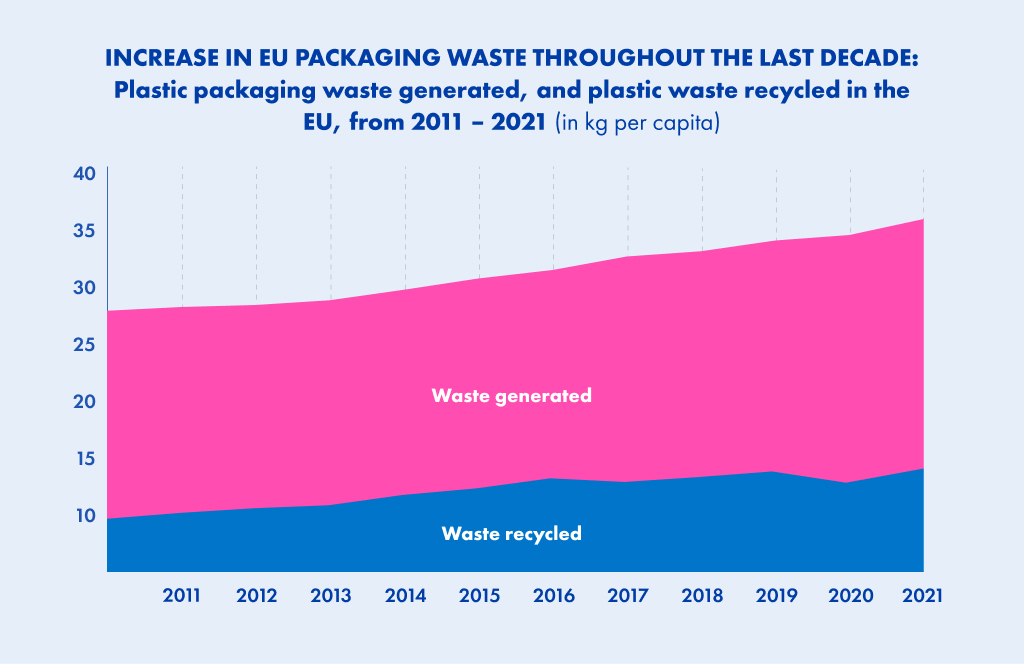Issue #143
Guten Morgen! Welcome to this week’s edition of your favorite weekly. Get your coffee, and dive into some news on not accurately named meetings, digitization in Germany and a glimmer of hope from Polish election results. Don’t let yourself get dragged down through an honest view on the current German crisis mode, it’s just a snapshot, but check out Ansgar’s WOOM on how fixing things actually is possible, and after that, enjoy your weekend to the fullest! Anna Szilvia WHAT TO WATCH THIS WEEK: Grand coalition all over again? As mentioned in our Woom last week, Germany is currently facing many challenges. Against this backdrop, the Chancellor declared the “Deutschland Pakt” (Germany Pact), where the Länder, the federal government, the ruling party, and the (democratic) opposition – all should come together to tackle the significant challenges of our time. A pact for all of Germany. All of Germany? Not exactly. There was a meeting on migration (one of the hottest topics currently) last week in the Chancellery, with Chancellor Scholz (SPD), opposition leader Merz (CDU), and two state prime ministers (SPD & CDU) representing the Länder. Do you notice something? No? Then that’s probably because, after 16 years of Merkel, with 12 years of a grand coalition between the SPD and CDU/CSU, no one seems to expect to involve other parties in such decisions. Strangely, this appears to be the prevailing opinion in Germany, even though our government now consists of the SPD, the Greens, and the FDP: we may end up with another grand coalition. INSIGHTS FROM PARLIAMENT: Digitization with Fax Machines? The digital transformation is in full swing around the world. Digital work, online banking, communication with the government, all of this is no longer a problem – or at least it’s being worked on. For this reason, the German government is currently working on an international digital strategy, which is expected to be published by the end of this year. This week, there was a public hearing in Parliament, where experts assessed this strategy. The unanimous consensus is that Germany needs it, with a focus on infrastructure security, cybersecurity, fair data management, and as a counterpoint to authoritarian governance models and their technological offerings. The problem? Digitalization is not Germany’s strength. The prevalent use of cash and the authorities’ continued love for their beloved fax machines are just two examples. Consequently, Germany’s digital strategy could potentially lack credibility and appeal. No one wants to rely on the guys with the fax machines in the era of digitization. There are calls for a more assertive European approach and international networking based on value-based partnerships. This would require significant cooperation and coordination, especially if it involves European and possibly transatlantic partners. However, the advantage of this approach would be its capacity to prevent a race to the bottom about Western world standards, which could lead us to our downfall and cede the stage to the systemic offerings of authoritarian rivals. So, it’s not a bad idea to focus more on cooperation and throw the fax machines out of the offices together. THE BIG PICTURE: Poland’s Parliamentary Election: Uncertain Path to Political Change and Reform The outcome of the parliamentary election in Poland has sparked a wave of relief in Berlin and Brussels. With only 35.4% of the votes for the incumbent government party, PiS (Law and Justice Party), and 53.7% for the democratic opposition, Poland appears to be on the brink of a political change in a pro-European direction. However, it’s premature to open the champagne bottles, as we know: in politics, nothing is as certain as uncertainty. PiS leader Kaczyński will likely try to persuade President Duda to entrust PiS with forming the government. This would allow Kaczyński to buy time until the new parliament’s inaugural session on November 14 and attempt to poach members from other groups. Moreover, a laundry list of challenges is waiting to be tackled. The new government must take measures to boost the recent stagnant economic growth. At over 10%, inflation is among the highest in Europe. The budget deficit and national debt are rapidly increasing. The leadership of state-owned companies, filled with loyal PiS supporters, needs comprehensive reform. Depoliticizing the central bank and other state institutions is urgently required. The new government must also take steps to hold PiS politicians accountable for breaking the law or engaging in illegal enrichment. The new prosecutor’s office will prepare such charges and be separate from the office of the Minister of Justice. In some cases, PiS ministers may even find themselves in the hot seat at the State Tribunal. The fact that PiS-friendly President Duda can veto laws adds complexity to the new government’s significant endeavor of aligning the Polish judiciary with European standards. However, the biggest challenge will be to reunite the Polish people. After eight years under Kaczyński, supporters of the opposition and PiS are deeply divided. Source: ec.europa.eu Here are three appointments for next week that you should have on your radar: GETTING STUFF DONE On June 11th this year, a truck loaded with gasoline missed an exit on I95 near Philadelphia, crashed, and burst into flames. The fire damaged the bridge so badly that I95 – one of the busiest highways in the US with 160,000 vehicles daily – had to be closed. It was actually very bad. Experts estimated that it would take a couple of months to reopen I95. It could have triggered the mother of all road rages. And of course, everybody discussed the failures of US infrastructure policies and how a dysfunctional government could never get anything right. But then – a miracle! I95 got fixed within days and reopened on June 23rd. Unbelievable. What happened? Governor Josh Shapiro and Secretary of Transportation Pete Buttigieg teamed up, declared a state of emergency that overruled all kinds of red tape, mobilized labor unions to support the effort, and got to work. It’s a temporary fix, but traffic flows while the rebuilding continues. The I95 fix is already legendary – veterans talk about it with dreamy eyes. Now – imagine we would be as determined to fix slightly bigger issues than a damaged highway? climate change-relevant infrastructure projects, for example… Issue #143


FIRST, SOME SOLID INTEL:
TAKE A BREAK, GIVE YOUR EYES A REST.

LONG STORY SHORT:
OUTLOOK:
When?
What?
October 23th, 2023
Meeting of the Foreign Affairs Council with the participation of the High Representative Josep Borrel
October 23th – 27th, 2023
Combined Cyber event (CYBERCO / MIC / FIC-MICNET)
October 24, 2023
D-USA bilateral dialog: Federal Minister of Digital Affairs and Transport Dr. Wissing in Washington and New York
WHAT’S ON OUR MINDS:





